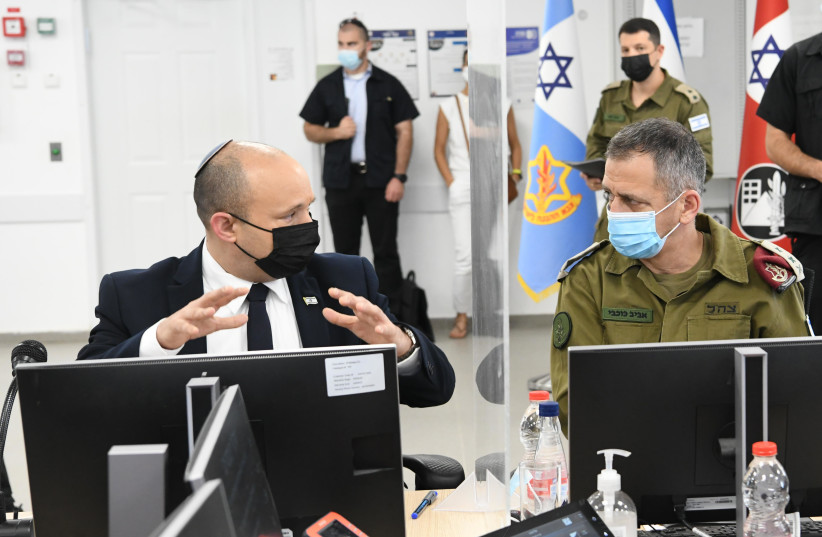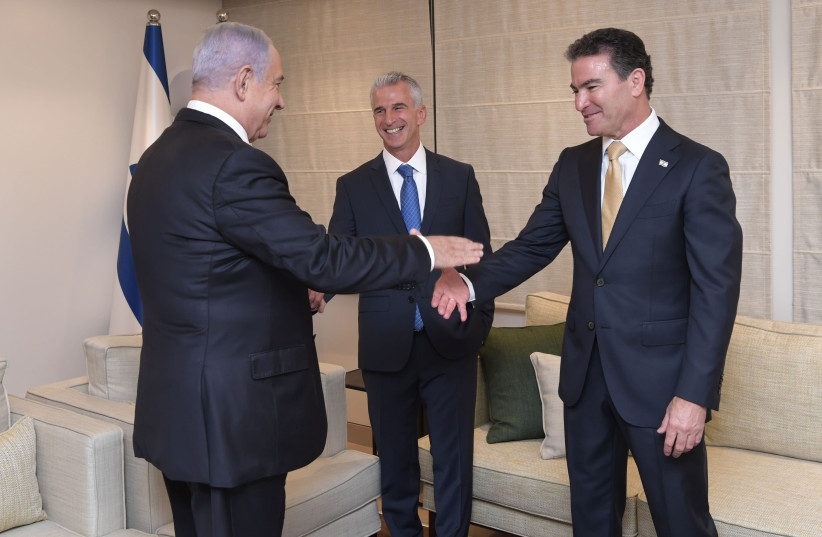It’s been a busy two years for Israel’s top security officials, Lt.-Gen. Aviv Kohavi and new Mossad chief David Barnea, fighting a war they never imagined they'd fight – the coronavirus and overseeing the battle against threats through a time of political and economic uncertainty.
Kohavi began his term in 2019 when Israel’s usual foes – Iran, Hezbollah and Hamas – were top priorities. And throughout his tenure, no matter the surrounding difficulties, Israel’s war-between-wars campaign against Iran and its Lebanese proxy Hezbollah has seen action on a weekly basis.
Over the past year under his command, the IDF has acted aggressively against Israel’s enemies, from north to south. It’s also played a key role in the fight against the coronavirus that has raged across the entire world.
See No. 13: The No. Twos
See No. 15: Facebook Executives
See full list
Download full magazine
See 2020's list
He believes it is of utmost importance to build the military for threats it will face some 30 years in the future and constructed the IDF’s multi-year plan accordingly, with new concepts and methods of warfare that have been adapted to the challenges of the urban battlefield saturated with enemy fire.

But it’s the North that has seen almost daily operational activity against both Iran and its proxies in Syria and Lebanon where Hezbollah reigns.
The past year has seen an increase in the pace and quality of Israeli strikes against Iranian assets in Syria, including kinetic operations as well as an expansion of both covert and clandestine operations.
“Our message is clear,” Kohavi has warned. “We will continue to act as vigorously as necessary against Iranian entrenchment in Syria, and we are fully prepared for any sort of aggression against us.”
Barnea stepped into his role with a bang.
On June 23, only three weeks after he had taken office, a facility for assembling advanced centrifuges at Karaj was attacked and seriously damaged by a drone.
Less than two months later, Barnea was holding critical meetings with CIA Director William Burns.
The Post has learned that during the Barnea and Burns meeting, the clandestine chiefs engaged discussed the deep and daring ties between the two organizations and the joint challenges confronting the two countries and their intelligence bodies.

While serving as Mossad director, Barnea has continued with developing and strengthening strategic cooperation with countries and organizations – intelligence and other – across the globe.
Many substantial challenges face the Mossad director, with the primary mission continuing to be to thwart Iran’s nuclear weapons program.
Just as crucially, Barnea has been tasked with working to prevent the establishment of an arsenal of advanced precision surface-to-surface rockets on Israel’s borders.
In his opening speech in June, Barnea alluded to potential assassinations of Iran's nuclear scientists and attacks on its facilities.
Barnea said “the Iranian [nuclear] program will continue to be met with the full power of the long arm of the Mossad. We are very familiar with the different components of the nuclear program and we are very familiar personally with the officials involved in it and also with the officials who direct them.”
Based on the past, the coming year will be no less exciting, not for Israel or Kohavi and Barnea.
